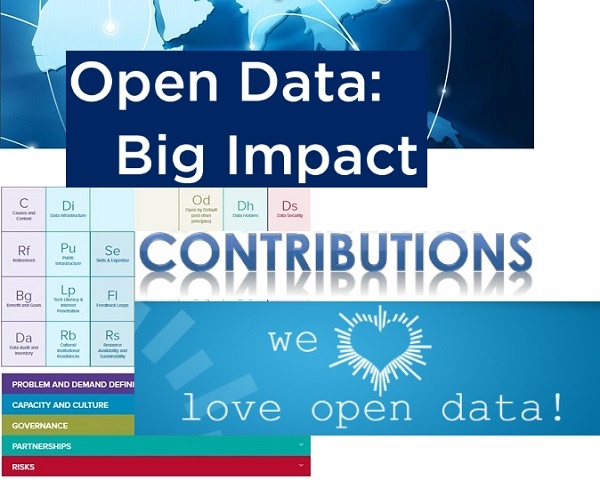OPEN DATA : Looking Back, Looking Ahead


For over a decade, OD has been a focus for policymakers, and is considered to be a tremendous resource for Open Government, although is as yet largely untapped (see: Mapping open data governance models: Who makes decisions about government data and how?) ... Only by fostering and applying the evidence about Open Data impact we can help it live up to its potential.
Generally, Open Data (OD) falls under the Open Movement cluster. In particular, OD can be seen as a staple of the Open Science (see: FOSTER Open Science Taxonomy), that aims at making scientific research, data and dissemination accessible to all levels. Besides advocating for OD and Open Access, Open Science also embraces practices as Open Research, and encourages researchers to practice Open Notebook Science, - to make it easier to publish and communicate scientific knowledge. |
In the context of OD benefits, the openness of 'Good OD' is a key component in the impacts OD creates.
'Good OD' is:
- quality data (i.e. fitness for use or potential use),
- representative data (presented with metadata & linked to other datasets),
- responsible data (ethical and with all supporting documentation),
- useful data, -
providing accurate, accessible, timely, updated and valuable information.
To help OD further live up to its potential, to advance the capabilities of OD portals, and to help deliver Big & Open FAIR Data upon the promise of a transparent government and research, different communities have been :
1. | Harvesting and sharing OD collections… Check out for OD Portals by country |
2. | Disseminating guidelines on how to build sustainable OD (& research data) portals and repositories (and to transport high quality data among different tools and platforms for further analysis) ...
|
3. | Setting out policy priorities and recommendations, and advocating for a clear, inclusive mechanism to connect and deliver quality OD (including research data) collaboratively…
|
4. | Building active partnerships to promote opening, sharing and common use of responsible data ... |
5. | Developing and promoting Tools & Capacity Development activities to assist producers, publishers and users of OD… |
Indeed, there are many areas (government, research, developing economies, business, social etc.) where different types of benefits of OD can be expected, and where examples - of how 'Good OD' has been used to create added value (e.g., by publishing and connecting Wheat Data with other data, in different forms) - already exist.
Anyhow, only by fostering and applying the evidence about OD impact we can help it live up to its real potential.
Data Value is unlocked by having data in the right place on the Data Spectrum, with access and ethics being considered.
In the public sphere (including citizens, economy, governments, NGOs, research), 'Good OD' can basically create six main groups of Impact :
1. Accelerated pace of discovery | 2. Improved governance, performance & trust | 3. More informed decision-making and quality policy agenda |
4. Increased problem-solving of major social problems | 5. New opportunities created for economic growth & innovation | 6. Improved integrity of the scientific & scholarly record |
For real impact stories based on unleashing the power of OD, you might take a look at: | ||
... | Open Data success stories from GODAN ... | |
'Despite the gradual movement towards open government data, very little is actually known about its impact – What, Where, How & under What conditions does open data work?'...
To further leverage our understanding of why some OD projects fall through while others succeed, and to translate that into a checklist for practitioners and policy makers, the GovLab has created ...
... a Periodic Table of Open Data [shown on your right] which includes 27 variables divided into five broad categories that determine OD project success: 1) Problem and Demand Definition 2) Capacity and Culture 3) Governance 4) Partnerships 5) Risks | View the full image HERE
|
Additionally, it is worth noting that in the modern era of cloud deployment and Big Data (e.g. Big Data Project of NOAA), - "More data is always more useful if you know what to do with it" (Open Data Institute).
Based on insights from different international case studies, AIMS has published a ToolKit for Open Data, - to help make your OD initiative a larger success. This ToolKit provides links to a number of recommendations - around OD data literacy and practices, community engagement, and free training initiatives, - to unlock greater knowledge exchange and social impact through effective OD use and re-use.
Even if it is always a first step in understanding how OD can be better harnessed to achieve ... Your goals.
Related:


